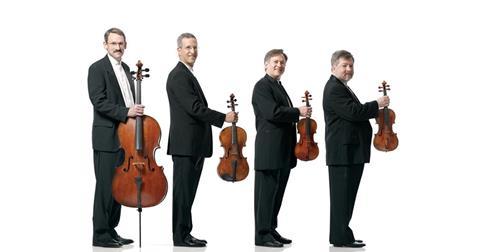As artists grow older they hear more in the music, says Orion Quartet violist Steven Tenenbom, who urges younger musicians to learn as much as they can from their mentors – and delve deeper into the music themselves

Recently I, as part of the Orion Quartet, performed Haydn’s miraculous Seven Last Words of Our Saviour on the Cross. Although I have played the work numerous times, this particular experience crystallised some personal thoughts that have been forming over the past few years regarding the continuity of great art from generation to generation.
My first encounter with this piece was at the Marlboro Music Festival in the early 1980s with David Soyer, eminent cellist of the Guarneri Quartet. It was an unforgettable process of exploring the depths and nuances of the work, yet the most important thing we learnt was how much learning still lay ahead of us.
A few years later, I was asked to play the Seven Last Words again, this time with the violinist Alexander (Sasha) Schneider of the Budapest Quartet, violinist Isidore Cohen of the Juilliard Quartet and the Beaux Arts Trio, and cellist Laurence Lesser, then head of the New England Conservatory of Music. Sasha was a champion of Haydn’s music and performed this piece each year in New York City. Being surrounded by my heroes and mentors was an experience that I have come to appreciate more and more each time I lift up my instrument.
I am older now – and perhaps a bit wiser. At any rate, I’d like to think I’ve gained a bit of perspective. The transition from generation to generation is and should be a celebration of the continuity of great art. Composers rely on the passing down of musical values that bring powerful expression from the page directly to the listener. It seems to me that with longevity comes understanding and clarity. I was keenly aware as a young player that my mentors could ‘hear’ more in the music.
With longevity comes understanding and clarity
Think of the legacy of Beethoven’s late string quartets. They were the product of around 50 years of personal and artistic development. The public kept asking for performances of his early op.20 Septet, a work he came to dislike. If he had stopped expressing himself in deeper, more meaningful ways, we would never have experienced these transcendent later works.
Audiences today can seem fascinated by younger players and some, in turn, make musical decisions based on impressing the listener rather than trusting the profundity of the music. As well as being open to insights from more experienced musicians, younger people need to broaden their own listening skills, both as players and audience members.
Suggestions for the listener
Come to concerts with a willingness to be moved more than just to be entertained. Learn more about the music. Go to lectures and read programme notes: they give a sense of cultural and musical background that provides context for the work. Most importantly, trust that what you are about to experience is the product of the innermost feelings of creativity.
Check in with your emotions. Is the music giving you a sense of calm, anxiety, euphoria or sadness? How do these feelings change during the piece? Is the sense of arrival where you expect it, or is it being delayed for more intense satisfaction?
Suggestions for the performer
Understand and respect what the composer is communicating. Do your best to think like the composer. He or she relies on you to focus your skills on bringing forth expressive communication in a selfless act of performing. You must be convincing. As cellist Bernard Greenhouse once said to Timothy Eddy, his student at the time, ‘You played quite well, you did everything correctly […] but I feel no different now than before you played. You must change me.’
As performers, we must strive not just to attain more technical facility, but to bring out more in the music. Thus the imagination and our sense of generosity improve. We should love sharing our love of music.
Musical knowledge does not exist in a vacuum. Every artist has the potential to add to the collective wisdom that came before them; to find a balance between what has been passed down and their own personal creativity. If we continue to nurture music in this way, its future will be in good hands.











































No comments yet